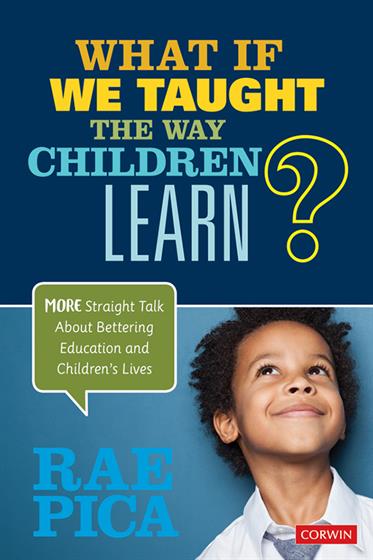Introduction
PART I. TEACHING WITH CHILDREN’S NATURE IN MIND
Chapter 1: Giving Children the Positive Reinforcement They Want and Need
Chapter 2: Seven Reasons We’re Seeing More Challenging Behavior in Early Childhood Settings
Chapter 3: Commonsense Solutions to Behavior Challenges
Chapter 4: Disruptive Children: Are Drugging and Dismissing Them Our Only Options?
Chapter 5: Trouble-Free Transitions: They’re Possible If We Understand Child Development
Chapter 6: Fostering Self-Regulation in Early Childhood: Are We Doing It Wrong?
Chapter 7: Logical Consequences Shouldn’t Be the Norm
Chapter 8: Screen Use in the Classroom: Why It’s Cause for Concern
Chapter 9: Downtime: Necessary for Children’s Mental Health and 21st-Century Skills
PART II. TEACHING WITH THE BODY IN MIND
Chapter 10: Making a Mess of Human Development: The Terrible Impact of Our Choices for Children
Chapter 11: This Just In: Young Children Don’t Get Enough Exercise
Chapter 12: The Link Between Movement and Challenging Behavior
Chapter 13: Teaching the Whole Child Means Addressing Physical Development, Too
Chapter 14: The Magic of Cross-Lateral Movement
Chapter 15: No Fine Motor Skills? What’s the Big Deal?
Chapter 16: Fidgety, Wiggly Kids: Here’s What’s You Need to Know
Chapter 17: Let’s Do Away with Crisscross-Applesauce
Chapter 18: Five Ways to Sneak Movement into the Curriculum
PART III. TEACHING WITH CHILDREN’S FUTURES IN MIND
Chapter 19: “What Is That?”: How We Unwittingly Dampen Children’s Creative Development
Chapter 20: Beyond “One Right Answer”: How to Promote Children’s Thinking Skills
Chapter 21: Should We Be Talking About Sexism in Early Childhood Education?
Chapter 22: Teaching Children to Fear
Chapter 23: School Shootings: What Does Early Childhood Have to Do with Them?
Chapter 24: Life Lessons Learned from Lunchtime
Chapter 25: Children Are Losing Their Connection to Nature and the Consequences Are Real
PART IV. ADVOCACY
Chapter 26: Who Are We Protecting When We Ban Children’s Activities?
Chapter 27: The Real Dangers of Childhood: How Do We Help People See Them?
Chapter 28: Shouldn’t School Safety Drills Be Implemented with the Children in Mind?
Chapter 29: Advocating for Children Can Be an Uphill Battle
Chapter 30: What If Early Childhood Professionals Pushed Back?
Chapter 31: ECE Advocacy: We Have the Numbers and the Tools
References and Resources


